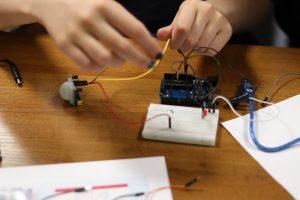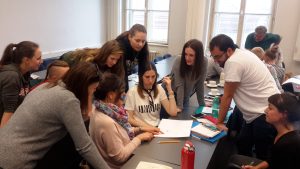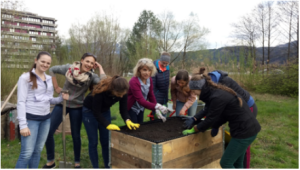
Inquiry-based Learning:
Inquiry-based mathematics education (IBME) refers to a student-centered paradigm of teaching mathematics and science. Students are invited to work in ways similar to how mathematicians and scientists work. This means they have to observe phenomena, ask questions, look for mathematical and scientific ways of how to answer these questions (like carrying out experiments, systematically controlling variables, drawing diagrams, calculating, looking for patterns and relationships, and making conjectures and generalisations), interpret and evaluate their solutions, and communicate and discuss their solutions effectively (Dorier & Maass, 2020).
 Experiential Learning:
Experiential Learning:
Experiential Learning (EL) refers to a learning process whereby knowledge is created through experience transformation (Kolb, 1984). The experiential learning theory works in four stages; concrete learning, reflective observation, abstract conceptualisation, and active experimentation. The first two stages of the cycle involve grasping an experience, the second two focus on transforming an experience. Kolb (1984) views learning as an integrated process with each stage mutually supportive and feeding into the next. It is possible to enter the cycle at any stage and follow it through its logical sequence. However, effective learning only occurs when a learner can execute all four stages of the model. Therefore, no one stage of the cycle is effective as a learning procedure on its own.
 Project-based Learning:
Project-based Learning:
Project-Based learning refers to a teaching method in which students learn by actively engaging in real-world and personally meaningful projects. Students work on a project over an extended period of time to solve a real-world problem or answer a complex question. The students demonstrate their knowledge and skills by creating a public product or presentation for a real audience. As a result, students develop deep content knowledge and critical thinking, collaboration, creativity, and communication skills. Project-Based learning unleashes contagious, creative energy among students and teachers.
Dorier, J.-L., & Maass, K. (2020). Inquiry-based mathematics education. Encyclopedia of Mathematics Education, 384–388.
Kolb, D. A. (1984). Experience as the source of learning and development. Upper Sadle River: Prentice Hall.
